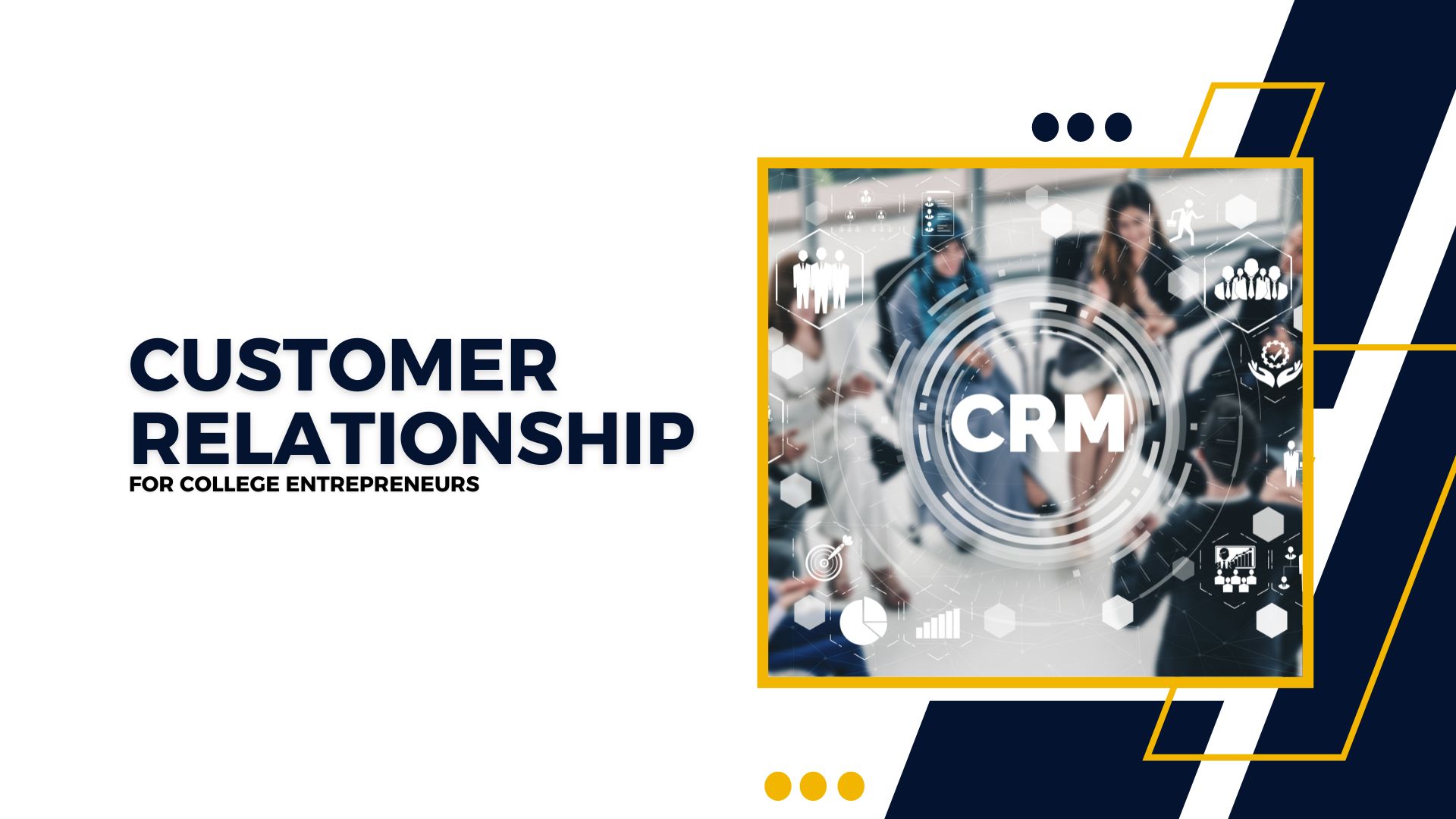CRM Hacks for College Entrepreneurs: Building Customer Relations That Last

Page Contents
College entrepreneurs are constantly seeking innovative ways to stay ahead of the curve. As a student balancing coursework and a budding business, the challenge lies in managing your time effectively while ensuring your venture thrives. This is where the art of customer relationship management (CRM) comes into play.
Mastering CRM techniques can be a game-changer for your student-run business, helping you build lasting relationships with your customers. To balance a successful startup with learning, many student entrepreneurs use an essay writer service, which allows them to tackle all academic assignments on time and get more time to invest in CRM. This article aims to guide you through some practical CRM hacks specifically tailored to the dynamic and unique needs of college entrepreneurs.
1. Personalized Customer Interactions
Personalization in CRM requires deciphering the specific needs of your customers. For instance, if you're running a campus coffee shop, use your CRM to track customer favorites. This way, when John, a regular, comes in, you're not just greeting him by name but also asking if he'd like his usual double-shot espresso. This level of detail shows customers that they're valued and understood, fostering a deeper connection.
Additionally, personalization can extend to communication. Divide your customers into segments depending on their preferences or purchase history. Send targeted emails with products specifically catering to their tastes. This approach increases the likelihood of repeat purchases and makes customers feel like they're part of an exclusive club.
2. Social Media for CRM
Social media is great for Your CRM efforts. It allows you to create a community around your product or service. To engage with your customers:
- Regularly check your comments and DMs to respond to your customers.
- Show how your business operates behind the scenes.
- Use polls and surveys to gather customer feedback.
- Collaborate with other student entrepreneurs for cross-promotion.
- Collaborate with bloggers and offer giveaways to boost interactions.
After engaging with your audience, analyze the data. Social media platforms provide insights into what content resonates with your audience. Use this information to tailor your future posts and offerings, ensuring they align with your customers' interests.
3. CRM Tools on a Budget
Budget constraints are a reality for student entrepreneurs, but that doesn't mean effective CRM tools are out of reach. Several CRM platforms offer free or discounted plans for students or small businesses. For example, platforms like Zoho CRM provide a free plan that's perfect for small-scale operations. These tools offer basic functionalities like contact management, which can be a great starting point.
Furthermore, consider CRM tools that integrate with other applications you're already using. If your business relies heavily on email, find a CRM that syncs with your email service. This integration ensures a seamless workflow, saving you time and effort in managing customer relationships.
4. The Power of Feedback
Feedback is a cornerstone of effective CRM. Suppose you run an online tutoring service. After each session, send a quick survey asking for feedback. If a student mentions they wished for more practice questions in a session, incorporate that into your future sessions. This responsiveness shows that you value their input.
In addition to surveys, consider informal feedback channels like social media or face-to-face interactions. If you notice several students mentioning a need for late-night study snacks, and you run a snack delivery service, consider extending your hours during exam seasons. These adjustments based on customer feedback can significantly enhance your service's relevance and appeal.
5. Integrating CRM with Academic Schedules
Balancing academics and business is a challenge. To align your CRM activities with your academic schedule:
- Schedule CRM tasks during your least busy academic days.
- Use CRM automation features to handle repetitive tasks.
- Set reminders for follow-ups or important customer dates.
- Utilize mobile CRM apps to manage customer relationships on the go.
- Identify and do the most urgent and important CRM tasks.
After setting up this alignment, you'll find managing customer relationships becomes less overwhelming. During exam periods, rely more on automation and schedule lighter CRM activities. This way, you're not compromising on either front.
6. Building a Community of Student Entrepreneurs
If you're a student entrepreneur, chances are there are others like you on campus. Use your CRM to build a network. For example, if you're into photography, connect with others who offer complementary services, like event planning. Together, you can refer clients to each other, creating a supportive community.
Moreover, attend or organize networking events and enter these contacts into your CRM. Maintain a record of your contacts and ensure you regularly reach out to them. This growing network can be an invaluable asset for collaboration opportunities and fostering business growth.
Conclusion
CRM is an essential aspect of your entrepreneurial journey in college. By personalizing interactions, utilizing budget-friendly tools, and staying updated with CRM trends, you set the stage for lasting success.
It's essential to remember that the ultimate goal is to create a sustainable and thriving business while juggling academic responsibilities. Many of you might rely on the best research paper writing service to manage your academic workload. Remember, the skills and strategies you develop now will not only aid in your current venture but will also be invaluable in your future endeavors. So, embrace these CRM hacks and watch as they transform your student-run business.

Robyn Greenspan, an independent researcher and speaker, is interested in innovation, market trends and information technology. She was a participant in the AI Summit and also took part in the IEEE International Conference on Edge Computing, International SOA Symposium series and the International Cloud Symposium series. She graduated from Temple University. She was previously the communications and research manager for the AMS, an internationally recognized professional association that advances knowledge in the IT and business management areas.